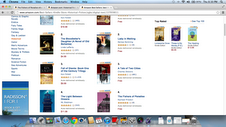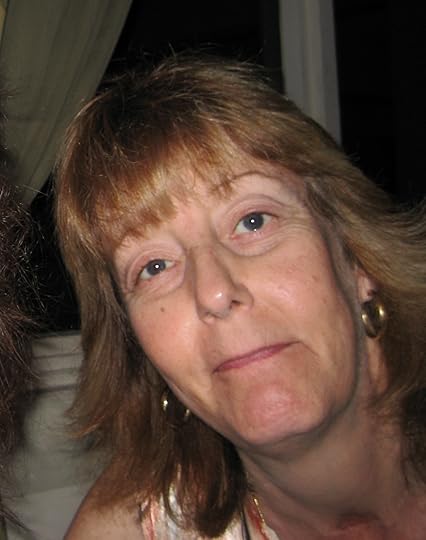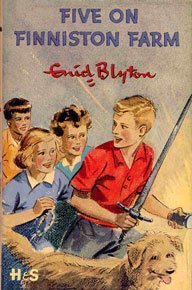Rachael Preston's Blog, page 2
November 11, 2012
Remembering Elaine
November 11. Remembrance Day. It seems the older I get the more it moves me. Not an uncommon reaction. Both my grandfathers served in WWII, Grandad Preston in a tank battalion (following a stint as a cook). One of my dad’s oft-told stories is of coming home to find a rifle leaning against the kitchen wall and a strange man in uniform sitting at the kitchen table. “This is your dad,” Grandma said. What she didn’t say until his death from leukemia (those asbestos tank linings?) 40 years later, was that dad’s dad had returned home with a steel plate in his head as a result of being hit with shrapnel. People played their cards closer to their chest back then.
November 11 is also my best friend, Elaine Shirley’s, birthday. Elaine died on January 30, 2009. That day her heart, her huge, generous heart, gave out. I still miss her. Today she would have turned 48. (Grandma, who shared the same birthday, would have been 101.)
I wrote this piece shortly after Elaine’s death. Few people who knew her have seen it so I wanted to share it here today.
AFTER ELAINE
It was a week after she’d gone, or at least a week after I’d learned she was gone, and I was driving along East Point and wondering to myself, as I had several dozen times already, if she’d sent me a sign and if so whether I’d missed it. In what form would such a sign come, and would I be ready for it when it did? After all, it was Elaine who read Runes and Tarot cards and who was attuned to visitors from the other side. I guess when you flirt with death as often as she did you learn to walk with the wounded. She told me a man had hung himself in the spare bedroom of our 140-year-old Hamilton home, and that the ghost of a mischievous child roamed the house—he flapped at the blanket I laid over her when she slept on the couch one night.
Did I ever see or feel the presence of these spirits? Not a chance. But as I passed by Russell Reef and looked out at the water it hit me: I didn’t really want a sign. What good to me was some vague indication from beyond that things were okay? I already knew that she was sitting on cloud eleven mainlining Godiva chocolates and spooning Cheez Whiz straight from the jar; that she was sharing smokes (she was always threatening to pick up her pack-a-day habit again) with Dorothy Parker—I can’t say whether Elaine knew of Dorothy Parker, but I’m sure they’re hitting it off well as I type. Elaine was like that: she had a quiet personality but a huge spirit. Once they got to know her, people turned to her because she lit them up. It is one of the many things I am going to miss about her. A sign can’t replace a person, or what they meant to you.
My first full day back on Saturna, back from travelling and the news that had left me reeling at Toronto airport where I’d expected to find Elaine waiting to take us to breakfast, I was standing at the window, looking out over the Strait of Georgia, and a sea-lion swam by and I asked him if he was her, and he looked right at me. It seemed he even stopped swimming just to stare my way. I’d been on the phone with Elaine the first time I’d seen a sea-lion break the surface of the water, not 10 metres offshore. But we were kind of fighting at the time, without fighting, if you know what I mean, the way I sometimes think women do, so it isn’t exactly the best memory.
There are 101 things you can beat yourself up over when you suddenly lose someone you were close to. But I’m trying not to go there. It’s better to remember all the fun we had, the wine we drank, the chapters we read and reread to each other, the trips we took, your murder mystery, the book fairs, Las Vegas, the humpbacks in the St. Lawrence, you crying at Mama Mia—I saw you—the drive to Grand Canyon with a murderous hangover (yours worse than mine), Pirate Steve and camping at Long Point, your obsession with chocolate and your continued amazement at how much I could eat. The laughter. Yards and yards of laughter.
So a sea lion looked my way. Great. Elaine was saying hello, telling me it wasn’t so bad on the other side. And that she was finally free of the medical bogeyman that had stalked her for all of her 44 years, 2 months and 19 days. Or a sea lion was swimming by. Sign or not, it wasn’t anywhere near the same as having her around, or on the other end of the phone. I pulled into the driveway and realized the only sign I could ever be satisfied with would be Elaine sitting in the passenger seat, giving me a hard time about looking for (and missing) signs. I wanted to talk to her. To pick up the phone and have a good long natter about stuff and nothing, the way we used to, a quarter of the conversation at least taken up with telling each other what our pets we’re doing: “I have a cat sitting on me right now.” “Fergy’s giving me the ‘I’m so hard done by’ routine.” Riveting stuff like that. But better that than some fuzzy, formless sign.
And yet that morning I’d woken up with “What a friend we have in Jesus,” looping over and over in my head. I often—near every day—wake up with some song or other in my head. But Ted Nugent, The Dandy Warhols or even the Pointer Sisters might be easier to explain away than some evangelical hymn of which I know scarcely more than the opening refrain. And on the day of her funeral, too. Elaine wasn’t even religious. I’m trying to pretend I didn’t find that well-thumbed Good News Bible in her apartment, stuffed with death notices. Even her sister, so determined to pack up every book of Elaine’s—“I’ll ship them to Australia if I have to. Every one of these books meant something to her,”—felt disturbed enough to toss it in the bin. But whenever Elaine flew back to visit relatives in Saskatchewan, she’d go to church with her mom. To make her happy.
A few weeks later I e-mailed Elaine’s sister-in-law to ask for a copy of the funeral service, and I asked her about the hymn. She couldn’t recall, she said, but then she was busy running round after two little ones. So I’ll wait for my copy in the mail to find out whether indeed they sang “What a Friend We Have in Jesus.” And if they did? Then I’ll take it as a sign. And I’ll smile and look out at the water, or up at the sky, and I’ll conjure Elaine’s face, and I’ll start up nattering to her all over again.
*
Update: A few weeks later Elaine’s sister-in-law mailed me a copy of her funeral service. I was 10 pages long, with a picture of a purple crocus on the front. And there, at the end of page 10:
Recessional Hymn: What a Friend we Have.
November 4, 2012
The High of Free Books
I watched one of David Suzuki’s The Nature of Things the other night, about dopamine and how it works on the teenage brain. The program was already 20 minutes in by the time I sat down in front of the tv, dinner balanced on a tray in my lap–I know, a little late, but I was waiting for hubby to be done with choir practice. Yes, I hear you, why wait to have dinner with someone if you’re just going to sit down in front of the tv? I don’t do it all the time. Ok?
Now I’m a long way from teenagehood, but I was intrigued by the show’s basic premise. In short, teenagers engage in risky behaviour, behaviour that pushes at the boundaries of safety (physical and emotional) and acceptance in order to experience and to learn. In response, the body produces more dopamine, the brain’s own reward system, which gives the risk-taker or thrill-seeker a high. And the feeling dopamine gives you is addictive: the more you do something that makes you feel great, the more you want to do it again to repeat that amazing feeling.
So what does this have to do with giving away free books?
Everything! If you’re a dopamine junkie, that is (and physiologically not everyone is).
Where’s the risk? It’s not as if you’re shelling out any money to do this (unless you take out ads on ebook blogs/ sites).
The risk is to your reputation or sense of self worth. What if no one downloads your book, even though it’s free? How’s that going to make you feel?
Like a loser.
Obviously, the goal of going free is to get as many downloads as possible, because when your book comes off free, it will then skyrocket up amazon’s popularity charts (different from their sales charts), thus making it more visible to shoppers cruising the site looking for their next great read. Also, the more downloads, the higher the chance of your book getting onto some bestseller lists: thrillers, mystery, historical fiction, literary fiction. Or how about this for my book: Non-fiction–Arts & Entertainment–Theatre. Huh? Search me. Ask amazon.
I put The Fisher of Paradise up for free on October 11 & 12. By the end of the second day I had 6502 downloads and was feeling so buzzy and high that I extended the promotion a third day. Total downloads: 7289.
7289. That’s more than the combined total of copies printed of my first two novels. Thousands more. For four straight hours on the second day, Fishers was downloading at the rate of 250 copies an hour. To complete strangers! Talk about a dopamine kick! And guess what, on amazon you can feed your addiction as often as you like–just click the unit sales button. Then click it again. And again. Watch those numbers change. Woo hoo. This is so far from the twice-yearly, hard to decipher royalty statements I’ve lived with for the past decade that I felt like a rat with a cocaine lever. Click it again. And again and again.
Yeah, but most of those downloaders are freebie junkies. No one’s going to look at your book now it’s buried on their device. How do you know? How many people have bought print books they’ve never read? Let me answer that for you. Everyone who’s ever bought books.
Some argue that the current onslaught of free books is devaluing culture, or at least devaluing the product authors are creating. But publishers have been giving away books as a promotional tool for as long as they’ve been publishing books . If you’re a bookseller or have ever worked in a bookstore you’ve likely been to a Book Expo. Publisher after publisher crammed into convention halls armed with boxes of books–sometimes skids of them–to hand out, and, as an extra special bonus, the author there to sign the book and have a chitty chat with. I attended as a Goose Lane author, to sign my books (somewhere between 20 and 30 copies, if memory serves) in the hope that the booksellers stuffing my book into bags bulging with 20, 30, 40 or more other books, many (most?) from authors far more well-known, would go home, read it (first, of course), fall in love and then go into work raving about it to every customer who stepped through the door.
Book Expo was a fabulous, heady experience. Of course I was nervous. Despite years of standing in classrooms teaching adults, this was different. This was me on the line, my guts poured onto the page and offered up to the public for approval. My book signing was announced, people gathered and formed a (small) line. I gripped the pen and raced through with my head down, barely lifting my eyes to ask the person’s name. 4, 3, 2, 1, it was over. I looked up. Everyone had gone. Three and half minutes had passed.
Immediately I regretted my rush. Why hadn’t I drawn the people out, chatted to them, asked them about their day, their dog’s name, anything to keep them there in front of me a few moments more, linger in this heady feeling, relax, enjoy it. Sure, dopamine was running around my system, but it ran dry pretty soon afterwards.
Of course I didn’t get to meet any of the people who downloaded my book for free, ask their name, or after their dog. Chances are I probably never will. But that giving away high lasted for 3 days. Not three minutes. Three days. Three sleepless, giddy, euphoric days. I know there are authors out there who get tens of thousands of downloads. I was chatting on the kindleboards with one of them, Anne Frasier, whose serial killer thriller Hush, on a free promotion at the same time as Fishers, managed such numbers. What did they do for her? Propelled her into the top 500 PAID amazon rankings. Three weeks later she’s still hovering around the 500-600 mark. That translates into A LOT of sales per day. The book is $3.99. Amazon’s share: 30%.
Does this happen to everyone? Of course not. A whole series of factors come into play. What side of bed you got out of, planetary alignment, weather, the genre you’re writing in, which blogs/sites announced your promotion, WHETHER YOUR BOOK IS ANY GOOD, the categories you’re in. Lots of people far more experienced than I am I at this game have written far more extensively and knowledgeably about such factors elsewhere.
What did it do for me? Well, not that. But I couldn’t pay for the kind of exposure those KDP Select free days gave me. I climbed as high as #32 on the top 100 Free, #1 in drama, and by the third day made it to #1 in Historical Fiction, which I was especially charged by. All those fabulous dresses with their crinoline skirts and plunging necklines, all those swords and castles. And me with my gritty family drama and a man standing on the roof of a shack wielding a sledgehammer against a shocking pink sky. As for post-free sales. I have them. And more than the pre-free sales, that’s for sure.

grabbed this from Ian’s apple, but you need a magnifying glass to read it. I still have a lot of wordpress learning to do!
Sales. That’s why authors do this, right? In the hopes their book will hit the stratosphere and propel them into fame and fortune. Sure. But I don’t think it’s the only reason. There’s the idea of hundreds and potentially thousands of strangers reading your work. Not friends or family or fellow authors. Complete strangers.
And then there’s dopamine. Already I’m anticipating the thrill.
So you’d do it again?
I would. In a dopamine-fuelled heartbeat.
October 23, 2012
Rescuing Old Ladies, or Where Do You Get Your Ideas From?
My friend Lynda Simmons tells people she gets her story ideas from a guy in Hamilton who sells them out of the back of his truck, her tongue-in-cheek response to the question most asked of writers. I used to tell my creative writing students to comb newspapers and eavesdrop, mine their experiences and ask probing questions of their family. Ideas can be had from most anywhere. The idea for Tent of Blue, my first novel, came from an experience I had while living in an old house than had been carved into several apartments. The separating walls were thin and across the hall lived a woman and her mother who was confined to a wheelchair. A set of stone steps led to the front door of the house. No ramp. No wheelchair access. The old lady was trapped. So was her daughter.
It was the daughter I heard most, shouting, haranguing, the rise and fall of her frustration, the grammar of anger tattooed on the kitchen cupboard doors. The old lady was mostly silent. Once in a while I’d catch a muffled response. Every day I sat at the dining table in front of the window, working on my novel Aurora (which resides happily in the bottom drawer), staring at the traffic and the Wimpy’s across the road and feeling alternately frustrated, anxious and at times downright sick. I never saw inside the apartment across the way. She never left her door open the way I did sometimes to stir up the air. Apart from the yelling—and for the six months we lived there there was a lot of yelling—I have no idea what transpired between those walls. I never heard a normal conversation. It was yelling or nothing.
One hot sticky night I propped open the front door to the building to let in the lakeshore breeze. Next morning I found the door closed and a note taped to the inside. I don’t remember the exact wording, other than it was rude and declarative. I wasn’t to leave the door open at night it proclaimed. No salutation, no please or thank you. Who was she, the door police? Shaking with fury I flipped the note and scribbled on the back, “Stop yelling at your mother day and night!!”
Okay, I overreacted. She never spoke to me again, though as we’d never really spoken before things weren’t a lot different. Certainly, she never looked me in the eye again. She also never stopped yelling at her mother, and the feeling grew in me that I had to do something—but what? Call the police? Bang on her door and get into a slanging match? Or worse? There had to be some way I could rescue the old lady from her bad-tempered daughter. Break into her apartment and make off with her, wheelchair and all. But what about all those damn steps outside? And where would I take her? How could I stop her from freaking out? I’d have to get to know her first.
And thus the idea for Tent of Blue was born—with the urge to rescue an old woman I had never seen. I turned the rescuer into a young boy. He had to be old enough and strong enough to plausibly carry out such a feat, while at the same time young enough to believably harbour such notions. So, a boy who hadn’t been well socialized, who was naïve and a dreamer, but not a Forrest Gump character. I needed an illness that meant he’d spent long stretches of his childhood in hospital, something that would have shaped his character, but not left him physically or mentally weak. And after discarding several ideas and reading Dudley Moore’s heartbreaking autobiography I choose clubfoot.
And Anton’s mother, Yvonne? She just walked into my head one day and wouldn’t leave.
October 17, 2012
Things I Learned From My Dogs
1. I can say no and mean it—my husband, not so much.
2. There’s no such thing as waterproof.
3. It’s okay to eat the same thing two days in a row. Even three or four.
4. Being cuddled and licked by an animal that delights in eating and/ or rolling in deer poop, goose poop, vomit, slugs, garbage, otter poop (the worst), strengthens your immune system.
5. Sharing is overrated. He who hogs the back seat and steals all the toys will be forgiven come suppertime when she who eats like a shark gets to clean up his bowl and the floor and his face.
6. Contrary to what I believe before stepping outside, I do like walking in rain, snowstorms and howling gales.
7. Merely thinking about going out sets off a chain reaction in the air that dogs pick up on.
8. Deer need to be chased.
9. Mud, grit and the volume of those things cedar trees spit out are inversely proportional to the amount of time you spend cleaning the floor.
10. Being cheap will come back and bite you. Cost of training a dog not to pull on the leash X 2= $600. Cost of replacing lost diamond and repairing wrenched settings in engagement ring= $822.40.
11. To have the perfect dog you need to make one up, as I did with George in The Fishers of Paradise. George is that dog you’ve always dreamed of: walks at heel, never pulls on the leash (what leash?), never gets lippy with other dogs (what other dogs?). Mind you, he does run off with a rabbit head (or two), and his loyalty can be called into question on a couple of key occasions. Come to think of it, he sleeps on the couch and he jumps up at Aidan and knocks him over. Okay, forget it. Even made up dogs aren’t perfect. But isn’t that part of why we love them?
September 29, 2012
Writing in a log cabin
Ever had the urge to chuck it all in to go live in a log cabin and write?
September 26, 2012
Wordless Wednesday
September 21, 2012
Dogs in Fiction
I love dogs. I have two labradoodles. Teddy is 65lb, long-legged, curly-haired, non-shedding and quite zen (until he spots deer). Tiber weighs in at 30lbs, give or take and depending on how much of Teddy’s food she’s managed to steal, exhibits a lot of cat-like qualities, and sheds 24/7. I also love my friends’ dogs, dogs that come sit on the patio at the pub, dogs in cars, dogs in boats, dogs (most) I meet when walking my dogs.
I love dogs in books.
But sometimes I wonder where they go.
I don’t mean Lassie, or Mutt in Farley Mowat’s The Dog Who Wouldn’t Be, or Marley in Marley and Me, or Enzo from The Art of Racing in the Rain, books where the dog is the title character or even the narrator. I’m talking about when an author introduces a dog into the book and you see it once or twice, doing its doggy thing, and then the dog ups and disappears. Sometimes, just as you think you’re never going to see the dog again, or that the author has forgotten their character ever owned a pet, the dog surfaces for a brief sniff around the room or romp around the lake. Sometimes the dog is simply curled up in its basket or asleep in front of the fire—fictional dogs do a lot of sleeping—and then, poof, it’s gone again.
Why invent them in the first place? If they don’t have much of a role to play, what is their purpose? To add sympathy for the main character? Sometimes it seems they’re just like an old slipper, hanging around. Authors should think twice before creating a fictional dog. They’re hard work, just like real dogs. Not physically, of course. You don’t need walking shoes and leashes and wet weather gear. And you don’t have to feed them, which in my case means cooking chicken, rice and oats and chopping up veggies and fruit because if I feed the big dude (Teddy) kibble, no matter how high the quality, how grain free, how organic and human grade, his coat quickly ends up smelly, his eyes weep and a stubborn ear infection returns.
But fictional dogs still need attention paid to them, lots of attention. They need to be taken for walks and played with, and they need an active role in family life, otherwise why have them at all? (And doesn’t this ring so painfully true for flesh and blood dogs?) When I read a book with one of these half dogs in it I conclude either that the author has never had a dog or that their dog has a very quiet (read: boring) personality. Because how can we forget about our dogs? The creator of Scooby Doo clearly had a dog. I bet Milan Kundera has had dogs. Kundera’s The Unbearable Lightness of Being was a huge hit in the 80s. What I remember of the book to this day is the heartbreaking death scene of Karenenin, the couple’s St. Bernard. When they buried him I had to put the book down and throw myself on the bed to cry.
My first fictional dog was George. Well, truthfully Spot was my first dog but he wasn’t very interesting. All he did was run. But George was supremely cool. George went on adventures. When I began writing The Fishers of Paradise it just felt right that my main character Egypt have a dog. And then it felt right that this dog be a gift from her dad on the eve of his skipping town, when she was eleven. Which is how old I was when my dad skipped the country. (I didn’t get a dog.) Anyway, I wanted to call my fictional dog George, as a tip of the hat to this first great fictional dog.
I must have been working on Fishers (then A City Beautiful, its working title) for several months before I remembered that George wasn’t actually the dog’s name. George was his owner’s name. Yup, George of the Famous Five, Enid Blyton’s best-known children’s series. As a kid I devoured those books. And I never forgot the dog, though clearly I’d forgotten his name. No matter. I didn’t care. It wasn’t important. George was George and I liked him just the way he was. I avoided looking up the Famous Five books and the dog’s real name—Timmy—until I got the idea for this blog entry. Timmy. It felt kind of flat. Anticlimactic. Not nearly as good as George. Timmy, as evidenced by the Famous Five book covers that Google yielded, also didn’t look much like George.
So much for cherished childhood memories. My George is longer-legged and slimmer. His coat is wispier, and he’s more the colour of an Irish Wolfhound. He’s altogether way more handsome in that scruffy dog kind of way. I got to wondering if I should reread a couple of Famous Five books, but then worried I’d discover that Blyton’s Timmy didn’t behave anything like my George. And that might change how I felt about George. I’m already uncomfortable enough with the idea that Blyton was racist, sexist and classist. I’d probably find other things about the books that would set me to fretting about my childhood and what kind of person I thought I was. Best to leave well alone. Though my clicking finger did find two interesting facts: some parents are now using Enid Blyton’s books to teach their children how values have changed; and the woman who sold 6 million children’s books was a dreadful mother: a spiteful, childish woman who ruthlessly manipulated her family and her image in order to promote her writing.
Readers may find fault with the way I (through Egypt) treat George. I hope not. Though it wasn’t always easy to take him along. He walked himself into scenes and tagged along with other characters when he felt like it. Egypt’s brother assumes George is his dog—in fact they squabble about it a couple of times. I didn’t always think about feeding him—although it’s inferred that he can take care of himself in that regard. He’s independent in spirit and takes off by himself for whole swathes of time but is more obedient and better trained than either of my dogs. He comes when called. Sometimes, it even seems he comes just because Egypt wills it. Isn’t fiction wonderful?
What are your experiences of disappearing dogs? Or just dogs in fiction? Any favourites?
September 16, 2012
My First Post
Rocking title. That’ll bring ‘em in. As I type, I can already hear a dull roar in the background, my desk is beginning to shake. And here they come, legs and fists a’pumping, beating a path to my door. Hammering on it. Chanting. What does she have to say? Tell us, tell us now. What are you going to write about?
I write novels. I tend bar. I promise not to write about bartending. However, when the alarm went off at 5.30 a.m. this morning (set for ferry-catching, forgot to turn it off) I decided I would change the tagline on this blog from Novelist, to novelist, bartender. Embrace what I do for a living. Own it. No more whining about how I used to teach Creative Writing. It’s in the past. My choice. Hubby was stuck in a rut and I was looking for a change. Which I got. Moved to Saturna, the southernmost of the Southern Gulf Islands, BC, population 335, and now I tend bar in the Lighthouse Pub, the only pub on the island, at the ferry dock. With a view straight down Plumper Sound where the sun sets between Salt Spring and the mountains. Beats most office views.

I will write about writing–when I taught it I talked about it all the time–and I will write about my new and scary adventures in self-publishing after having two novels published traditionally. I will likely write about my dogs, because dogs are important and mine are important to me.

‘smine
To quote my dad, who may be quoting someone else, I take what I do seriously, I just don’t take myself seriously while I’m doing it.
January 17, 2012
Canadian Ginger
Lorem ipsum dolor sit amet, consectetuer adipiscing elit. Aenean commodo ligula eget dolor. Aenean massa. Cum sociis natoque penatibus et magnis dis parturient montes, nascetur ridiculus mus. Donec quam felis, ultricies nec, pellentesque eu, pretium quis, sem. Nulla consequat massa quis enim.
Lorem ipsum dolor sit amet, consectetuer adipiscing elit. Aenean commodo ligula eget dolor. Aenean massa. Cum sociis natoque penatibus.
The post Canadian Ginger appeared first on Rachael Preston | Author | Bookwriter.
January 14, 2012
The Fishers of Paradise
Lorem ipsum dolor sit amet, consectetuer adipiscing elit. Aenean commodo ligula eget dolor. Aenean massa. Cum sociis natoque penatibus et magnis dis parturient montes, nascetur ridiculus mus.
Donec quam felis, ultricies nec, pellentesque eu, pretium quis, sem. Nulla consequat massa quis enim. Donec pede justo, fringilla vel, aliquet nec, vulputate eget, arcu. In enim justo, rhoncus ut, imperdiet a, venenatis vitae, justo. Nullam dictum felis eu pede mollis pretium. Integer tincidunt. Cras dapibus. Vivamus elementum semper nisi.
Aenean vulputate eleifend tellus. Aenean leo ligula, porttitor eu, consequat vitae, eleifend ac, enim. Aliquam lorem ante, dapibus in, viverra quis, feugiat a, tellus. Phasellus viverra nulla ut metus varius laoreet.
Quisque rutrum. Aenean imperdiet.
Etiam ultricies nisi vel augue.
Curabitur ullamcorper ultricies nisi.
Nam eget dui. Etiam rhoncus.
[quote float=”left”]Aenean vulputate eleifend tellus. Aenean leo ligula, porttitor eu, consequat vitae, eleifend ac, enim.[/quote] Donec quam felis, ultricies nec, pellentesque eu, pretium quis, sem. Nulla consequat massa quis enim. Donec pede justo, fringilla vel, aliquet nec, vulputate eget, arcu. In enim justo, rhoncus ut, imperdiet a, venenatis vitae, justo. Nullam dictum felis eu pede mollis pretium. Integer tincidunt. Cras dapibus. Vivamus elementum semper nisi.
The post The Fishers of Paradise appeared first on Rachael Preston | Author | Bookwriter.







